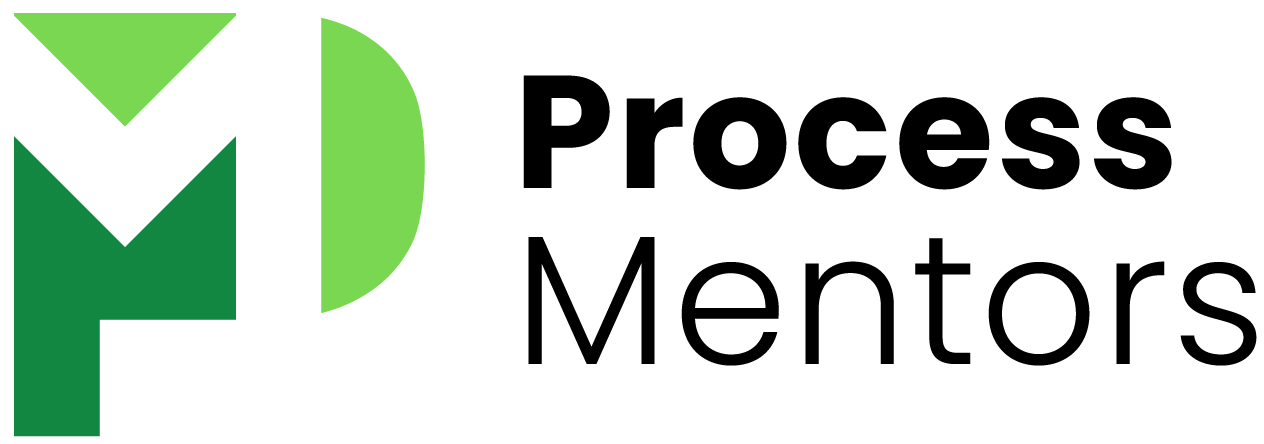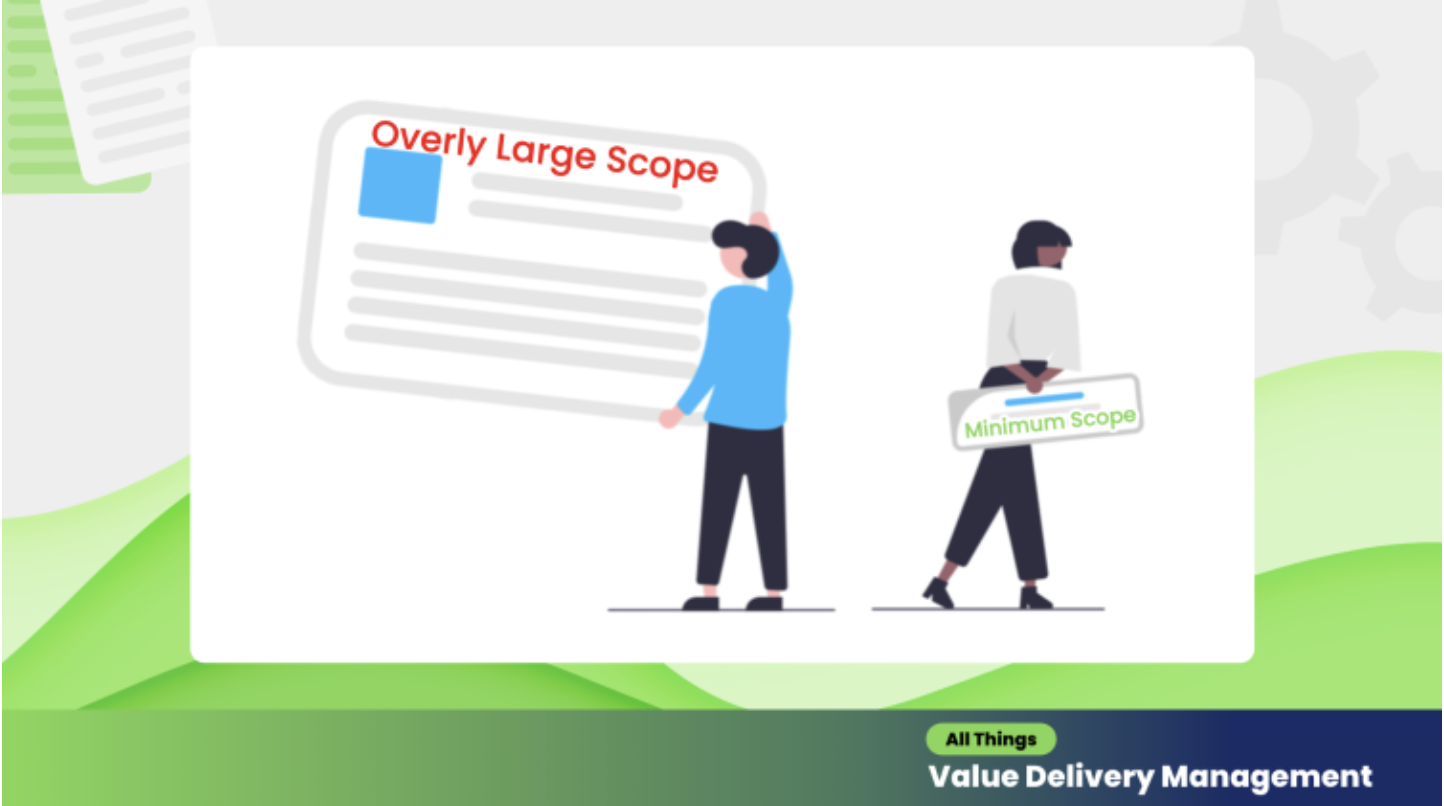
Is the size of work the minimum scope to provide value a customer can consume? In most cases, the answer is no. However, whether it is a project, business case, charter, work package, epic, etc., we can almost always identify a minimum business increment.
Relentless focus on minimums. That is one of the core mindset changes I have observed to improve the flow of value to customers. This is something that I teach and coach Product Managers and Product Owners to embrace. Always think about the smallest thing that can be done, which provides value.
Although Product Managers and Owners should drive this, everyone, including agile team members, stakeholders, Portfolio Managers, Program Managers, and the leadership team, should have this mindset and constantly challenge to ensure we are not doing more than needed.
Doing the minimum size is not an excuse to do less or not work hard or just get by. On the contrary, doing the minimum, the smallest scope possible, which provides a customer value they can consume, is how we improve the overall flow of value delivery.
When small items are identified vs. large items, we can realize benefits such as:
- Quicker feedback cycles
- Shorter time to market
- Easier to understand what is higher vs. lower value
- Decreased work in progress
- Reduced planning timelines
Large-scope work, which often requires six, nine, twelve months, or more to complete and release, is a leading inhibitor of achieving business agility. When we have a smaller scope that can be completed and delivered in one, two, or three months, we can pivot much more effortlessly and at a lower cost. That is business agility.
Who is monitoring that small-sized high-value work is being done? In my experience, far too often, no one.
Should an agile coach already be doing this? Absolutely. Unfortunately, there are many circumstances hampering this from happening. Team-level coaches such as Scrum Masters often do not have the depth of experience or knowledge to know how to do this or the benefits from a value stream management perspective. They are usually focused on just getting basic practices adopted by the team. They may also suffer from a lack of empowerment. Project Mangers, on the other hand, by their titled position and role in an organization, usually have either the empowerment or influence to usher the changes required for smaller-sized items.
As Project Managers (and others) move into the Value Delivery Manager role, “VDM,” we have someone that is explicitly monitoring and challenging if this is the minimum business increment, feature, or story.
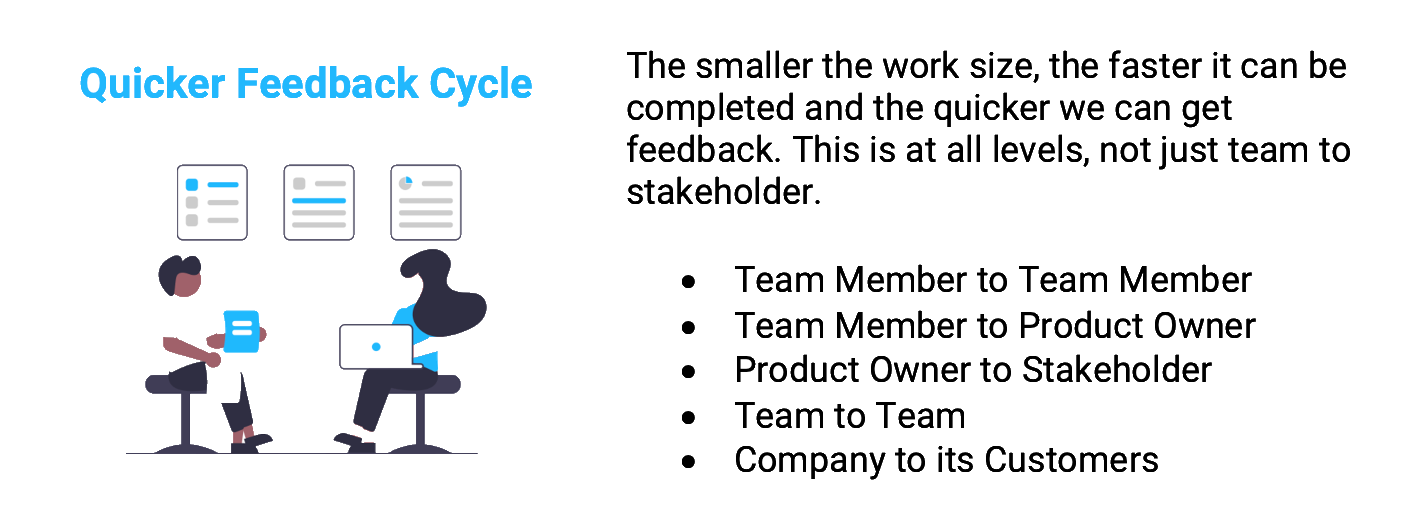

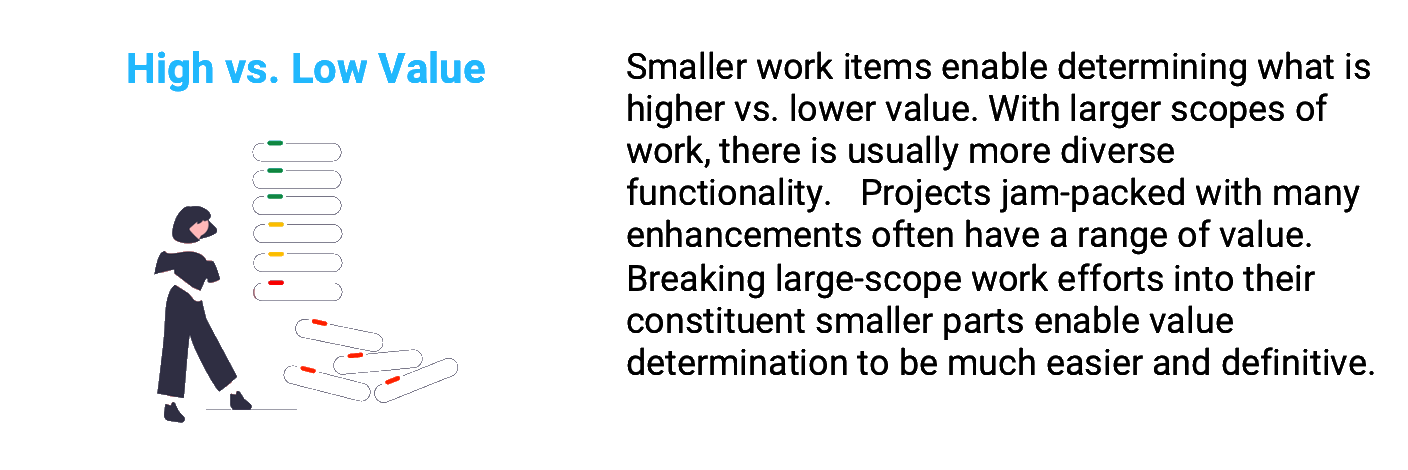
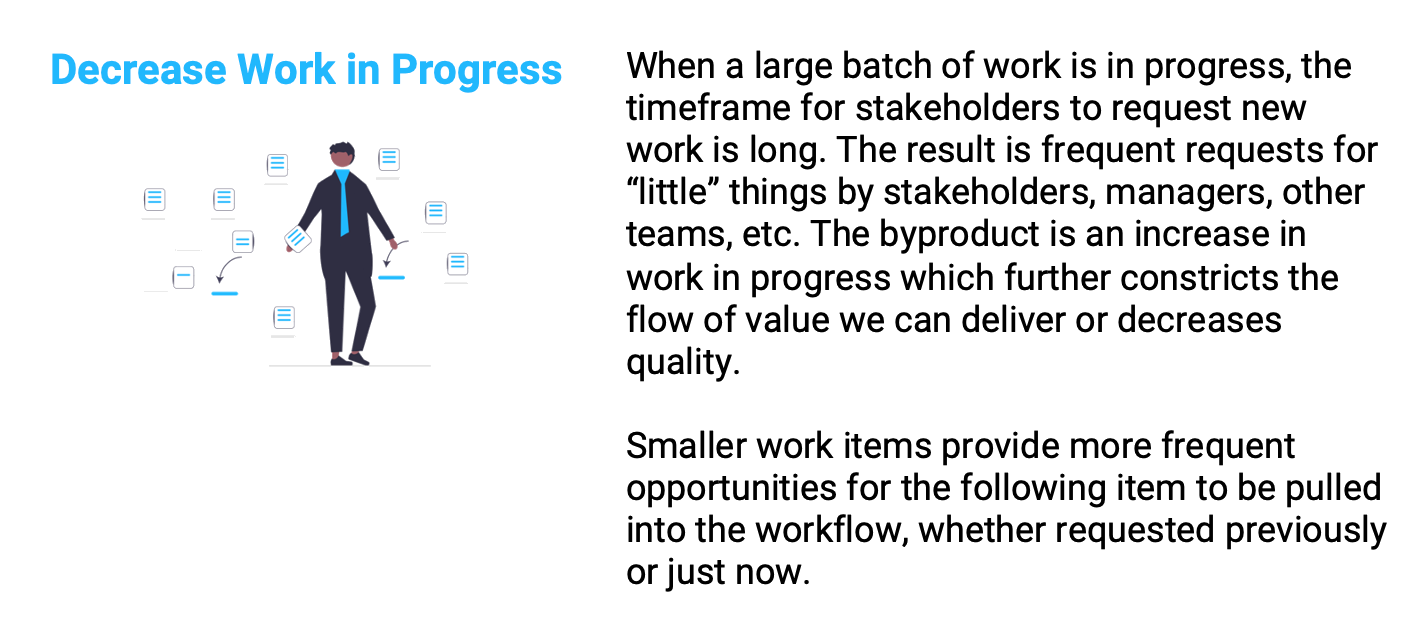
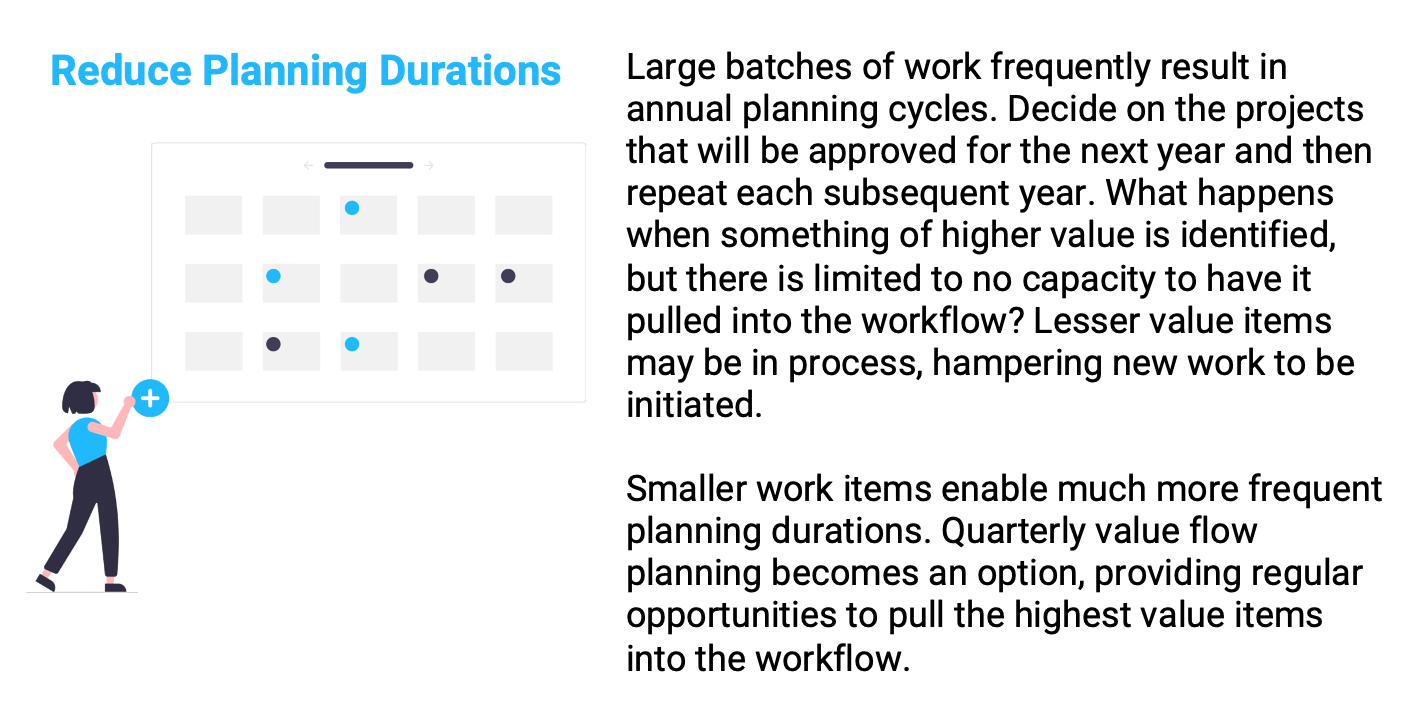
The Value Delivery Manager can bring focus and empowerment to ensure that small items of high value are being worked on, increasing the flow of value to customers.
Where to Learn More
If you are a project manager or in a leadership role, foundational value stream management training is a great first step: Value Stream Management for Project Managers and Leadership (1-day).
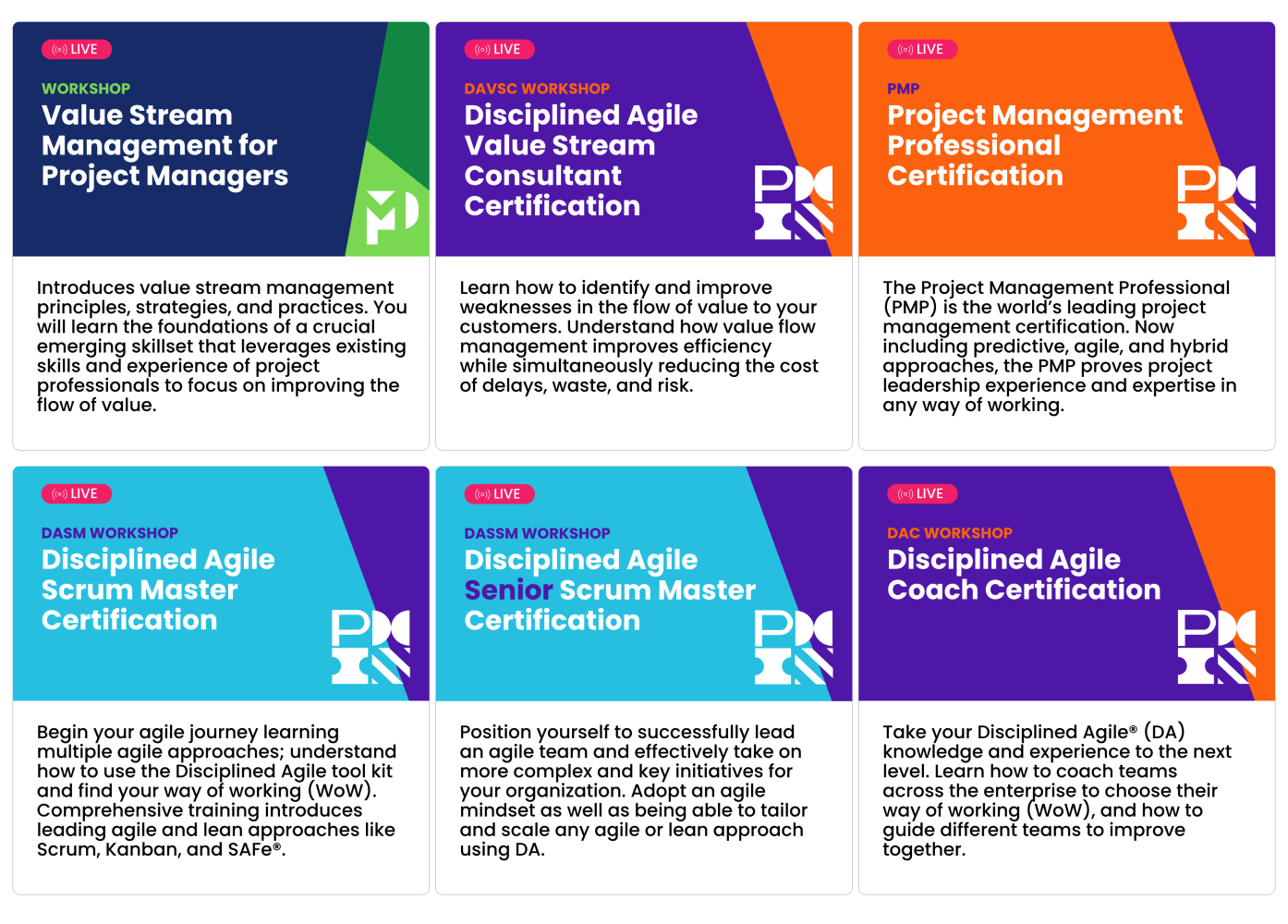
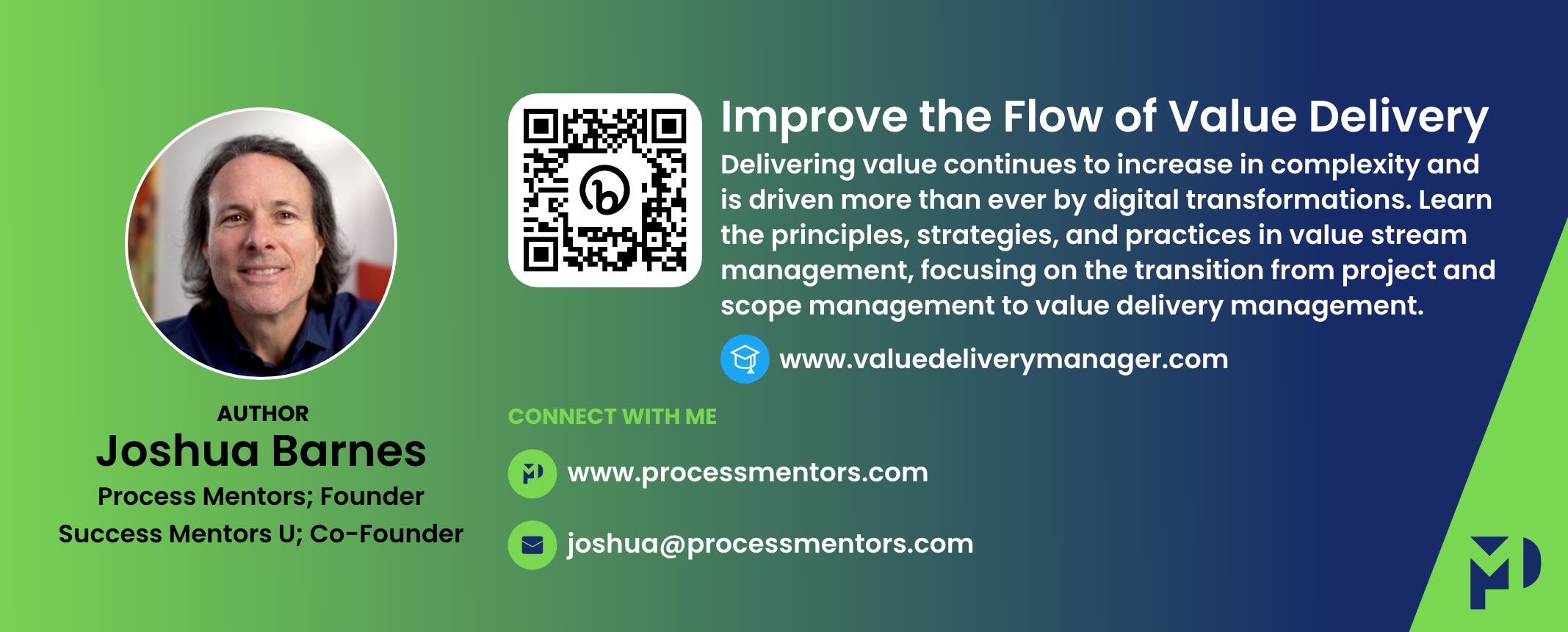
About the Author
Joshua Barnes is the founder of Process Mentors; a consultancy focused on improving ways of working. Over the past two decades, Joshua and his staff have had a breadth of engagements, including culture change, increasing productivity while reducing risk and waste, and focusing on the fewest things that significantly impact people, performance, and outcomes.
Joshua’s focus is Disciplined Agile and value stream management, improving the environment in which delivery teams work, thus increasing the flow of value to customers. He is an international speaker, LinkedIn Learning author, host of several live stream series, and a published author.

We help implement lean and agile methodologies to streamline processes in a context-sensitive manner.
Quick Links
Latest Posts
Project Manager to Value Delivery Manager
Here we have a common problem. The “agile team” comprises a product owner, team coach, and team members. Far too often, I hear something like, “there are no project managers in agile.” Agile teams are empowered to make decisions and determine how to get the work done....
New Series for 2023: All Things Value Delivery Management
Delivering value continues to increase in complexity and is driven more than ever by digital transformations. The result is a growing emphasis on dependency management and coordination - but that will only get you so far. As organizations realize the benefits of...
